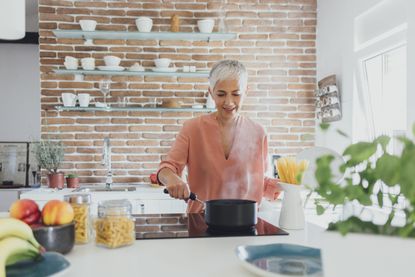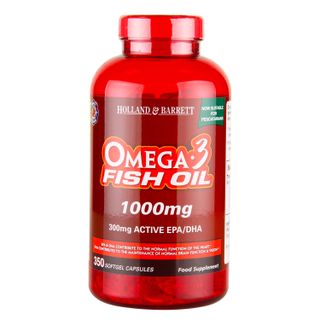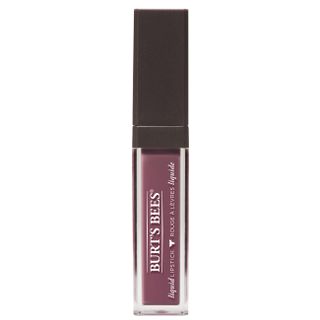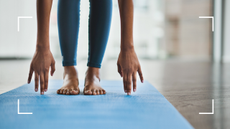Delay the menopause by substituting these common household items says Dr Marilyn Glenville

The average age for women to hit the menopause is 51, according to the NHS, although the end of women’s menstrual cycles can occur anywhere between the ages of 45 and 55. But can you delay Menopause? Dr Marilyn Glenville thinks so...
Much has been written on the menopause and the steps menopausal women can take to ease symptoms ranging from hot flushes to depression, from herbal remedies to breathing techniques, but new research has also been examining the factors that could have an influence on when the menopause starts.
This has included everything from whether you live in a rural or urban area to new procedures that can trick our biological clocks into thinking our bodies are younger than they are.
Now leading nutritionist Dr Marilyn Glenville, author of Natural Alternatives To Dieting and expert speaker at The Get Well Show, has added to this idea, revealing that making simple switches at home could hold the key to delaying the menopause. Here’s how:
Dr Marilyn Glenville's guide to delaying menopause
Pick the right pots and pans
PFOAs (a synthetic chemical used to repel grease and water) is found in some cookware. It can build up cumulatively in our bodies over time and has been identified as a hormone disruptor; though it’s full health impact is still unknown.
‘Using the right kind of pots and pans to cook your food may be important because the actual surface of the pan that you are using can end up being absorbed into your food when heated to high temperatures,’ says Dr Glenville.
Sign up for the woman&home newsletter
Sign up to our free daily email for the latest royal and entertainment news, interesting opinion, expert advice on styling and beauty trends, and no-nonsense guides to the health and wellness questions you want answered.
‘Try to avoid any non-stick pans or utensils completely as it’s just not worth having the possibility of that toxic exposure. It’s just as easy to cook with stainless steel, cast iron or glass cookware.’
You’ll find a number of PFOA-free pans in our guide to the Best Induction Pans.
Fill up on fish
As well as being a healthy source of protein, it’s thought that omega 3 oils in fish help the pituitary gland in the brain to stimulate a woman’s ovaries, and in turn support continued egg production.
‘The Omega 3 fatty acids should be added separately because they are not usually included in a multivitamin and mineral and if they are, the levels will not be high enough,’ says Dr Glenville.

TRY: Holland & Barrett Omega 3 Fish Oil 1000mg (350 softgel capsules), £29.99
Cut out cling-film and plastic storage
Like PFOAs the chemicals found pliable plastics used for cling-film and more have been found to disrupt the hormonal systems in animals and children.
‘Although it’s not yet clear how this would affect the hormones of older women, some experts advise a ‘better safe than sorry’ approach — pointing to the rise in health problems such as breast cancer and other oestrogen-dependent conditions like fibroids or endometriosis, which are possibly linked to these chemicals,’ says Dr Glenville.
‘Remember to never heat food in plastic — and if you must buy food wrapped in it, remove the packaging when you get home. Instead, store food in the fridge in a dish with a saucer covering it or use greaseproof paper.’
Buy into natural beauty products
A group of chemicals called phthalates – found in four out of five beauty products such as foundation, lipstick and nail varnish – can interfere with hormonal balance.
‘Think more carefully about the products you regularly put on your skin. As your skin is the most absorbent organ of the body, do you really need or want all these chemicals entering your blood stream?
‘Check the ingredients list properly and, where possible, stick to natural, plant-based products,’ advises Dr Glenville.

TRY: Burt’s Bee’s Moisturising full coverage liquid lipstick in Blush Brook, £6.66
If you are struggling with menopause, or if you have any concerns make an appointment to see your GP.
Miriam worked for woman&home for over five years and previously worked on the women's lifestyle magazines Woman and Woman's Own.
-
 Shetland season 9 ending explained: Who murdered Annie and Bergen?
Shetland season 9 ending explained: Who murdered Annie and Bergen?We delve in the Shetland season 9 final episode to unpick everything happened, and find out who was responsible for the death of Annie and Bergen.
By Lucy Wigley Published
-
 Ageing expert reveals 4 tips to 'build better bone' on Davina McCall's new podcast - and why it's so important
Ageing expert reveals 4 tips to 'build better bone' on Davina McCall's new podcast - and why it's so importantDr Vonda Wright is a leading surgeon, scientist, and researcher on longevity and mobility
By Grace Walsh Published
-
 Can menopause cause a loss of taste and smell? Plus, 6 other signs of menopause you might not expect
Can menopause cause a loss of taste and smell? Plus, 6 other signs of menopause you might not expectCan menopause cause a loss of taste and smell? It's more than just colds and flu that can change our tastebuds
By Emily Smith Published
-
 The health benefits of protein powder for women, according to a nutritionist
The health benefits of protein powder for women, according to a nutritionistWe've got the scoop on the benefits of protein powder when it comes to your health
By Lucy Gornall Published
-
 Wondering if you're postmenopausal? These are 9 ways your body changes post-menopause
Wondering if you're postmenopausal? These are 9 ways your body changes post-menopauseThese are the body changes you can expect if you're postmenopausal
By Lauren Clark Published
-
 Can you get pregnant during perimenopause? Here’s how your fertility changes from your 40s
Can you get pregnant during perimenopause? Here’s how your fertility changes from your 40sIf you’re wondering can you get pregnant during perimenopause, we’ve got the expert verdict
By Lauren Clark Published
-
 What are the main menopause symptoms? Find out the signs and when to see your doctor
What are the main menopause symptoms? Find out the signs and when to see your doctorA team of experts outline common menopause symptoms and how to deal with them
By Stacey Carter Published
-
 Here's how to tell whether you're experiencing menopausal weight gain—and what to do about it
Here's how to tell whether you're experiencing menopausal weight gain—and what to do about itIf menopausal weight gain is knocking your confidence, this is everything you need to know...
By Lauren Clark Published
-
 How to calm down hot flushes if you are going through the menopause
How to calm down hot flushes if you are going through the menopauseHot flushes are thought to be caused by hormonal fluctuations—these are the best ways to ease them...
By Lauren Hughes Published
-
 Menopause needs an image rebrand—let’s celebrate rather than fear it
Menopause needs an image rebrand—let’s celebrate rather than fear itA convincing argument on why menopause can be a positive stage of a woman's life
By Michelle Hather Published